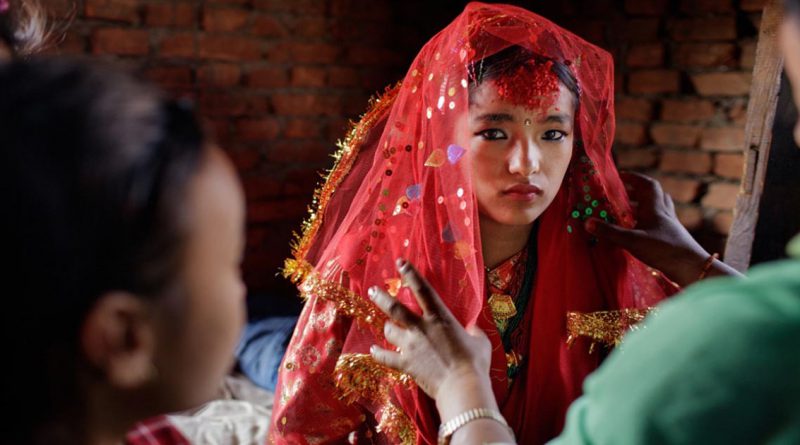Pakistan Criminalizes Child Marriage in Islamabad Amid Religious Opposition
Islamabad — Pakistan on Friday has passed a new law criminalizing child marriage in the federal capital territory of Islamabad, despite stiff resistance from the country’s top Islamic advisory body.
On Friday, Pakistani President Asif Ali Zardari officially signed into law the Islamabad Capital Territory Child Marriage Restraint Bill, 2025, criminalizing the practice of underage marriage in the federal jurisdiction. The law sets the minimum legal age of marriage at 18 for both boys and girls, introducing strict penalties for those who facilitate or conduct such marriages.
The new law prescribes up to seven years of imprisonment for parents, religious clerics, or marriage registrars who arrange or conduct marriages involving minors. Additionally, the legislation categorizes any sexual activity with a child bride, regardless of supposed consent, as statutory rape. Adult men who marry underage girls can now face up to three years in prison.
This significant legislative development marks a breakthrough in the fight against child marriage in Pakistan, a country that ranks among the top ten globally for the highest absolute number of child brides, according to data from Girls Not Brides, an international advocacy group. The data reveals that 29 percent of girls in Pakistan are married before they reach 18, and 4 percent marry before turning 15.
Religious Resistance and Constitutional Contention
Despite the progressive nature of the bill, it has sparked sharp backlash from the Council of Islamic Ideology (CII), a constitutional advisory body that reviews Pakistani laws for conformity with Islamic injunctions.
The CII declared the bill “un-Islamic” earlier this week, arguing that setting a minimum age limit for marriage contradicts Islamic teachings. In particular, the council objected to clauses equating underage marriage with child abuse and criminalizing it with harsh penalties.
“The fixing of age for marriage and terming marriage below 18 as abuse is not in line with Shariah,” a statement from the Council read, reigniting a longstanding debate in Pakistan between secular human rights legislation and religious jurisprudence.
Nevertheless, the President’s Office confirmed the law’s enactment in a formal notification: “The Islamabad Capital Territory Child Marriage Restraint Bill, 2025 is assented to, as passed by the Parliament.”
A Legislative Victory for Women’s Rights
The bill was initially tabled by Pakistan Peoples Party (PPP) lawmaker Sharmila Faruqui and passed unanimously in the National Assembly on May 16. The passage of the bill is being celebrated by women’s rights organizations and civil society groups, which have campaigned for years to ban child marriage at the federal level.
PPP Senator Sherry Rehman, a prominent women’s rights advocate, hailed the President’s decision. “Proud moment for Pakistan,” she posted on X (formerly Twitter). “Thank you to all the women and men who made this possible after a long journey of twists and turns.”
The development comes after years of stalled legislative efforts and pushback from conservative religious quarters. Child marriage has been a deeply entrenched social issue in Pakistan, often justified by traditional customs or misinterpretations of religious doctrine.
Health and Education Risks for Child Brides
Experts warn that child marriage not only robs girls of their childhood and education but also puts them at grave risk of health complications. Girls who marry young are far more likely to drop out of school and face increased vulnerability to domestic abuse, reproductive health issues, and even death during childbirth.
Medical studies indicate that adolescent girls face significantly higher risks during pregnancy, including obstetric fistulas, sexually transmitted infections, and maternal mortality. Teenage mothers are several times more likely to die from childbirth-related complications than women in their twenties.
The World Health Organization (WHO) has consistently emphasized the correlation between early marriage and deteriorating maternal and child health indicators. Moreover, child brides often lack the autonomy or awareness to seek medical assistance during emergencies.
A Model for Broader Reform?
While the new law applies only to Islamabad, activists are calling on other provinces to adopt similar legislation. Currently, the minimum legal age for marriage varies across Pakistan’s provinces. In Sindh, the age limit has already been set at 18 for both sexes since 2014. However, in Punjab, Khyber Pakhtunkhwa, and Balochistan, the legal age remains at 16 for girls and 18 for boys.
“Now that Islamabad has set the precedent, it is time for provincial governments to follow suit,” said Zainab Qureshi, a legal analyst with the Human Rights Commission of Pakistan. “Uniform legislation across the country is the next step.”
Human rights groups believe that a coordinated effort is required to not only criminalize but also educate communities about the dangers of child marriage.
The passage of the Islamabad Capital Territory Child Marriage Restraint Bill is a milestone in Pakistan’s ongoing struggle for gender equality and child protection. While resistance from conservative circles remains a barrier, the law marks a critical step forward in aligning Pakistan’s domestic laws with international standards on children’s rights.
Whether this reform can be replicated nationwide remains to be seen. But for now, Islamabad’s children—and especially its girls—have been granted legal protection against one of the most harmful traditional practices still prevalent in the country.


